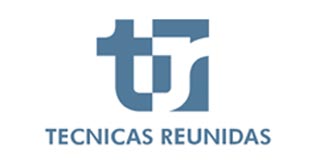CCUS Technologies - Carbon Capture, Transport, Utilization, and Storage

CCUS: From Challenge to Opportunity
The main objective of this program is to provide specialized training in the technological sector of CO₂ capture, transport, storage, and utilization. It is aimed at professionals in the energy, chemical, environmental, and subsurface resource sectors, as well as postgraduate students seeking to specialize in industrial decarbonization.
Over the coming years, CCUS technologies will see a significant increase in European investment and a growing demand for professionals with specialized skills in this field.
This exclusive program is supported by the expertise of its academic director and by partnerships with leading companies in the CCUS value chain. These industry partners will collaborate in course delivery and contribute to students’ professional development.
In a world where the fight against climate change is increasingly urgent, Carbon Capture, Utilization, and Storage (CCUS) technologies are emerging as essential pillars for achieving climate neutrality.
This comprehensive course will equip you with the technical, economic, and strategic tools to lead CCUS projects, from design to safe and sustainable implementation.
Nebrija University offers this specialized training in the technological sector of CO₂ capture, transport, storage, and utilization. It is designed both for professionals in the energy, chemical, environmental, and subsurface resource sectors, and for postgraduate students wishing to specialize in industrial decarbonization.
Key Modules
The program covers CO₂ Capture using leading technologies such as chemical absorption with amines, membranes, cryogenics, and oxy-combustion, integrating their application in industrial plants together with cost and efficiency analysis. It then explores Safe Transport through pipeline networks and maritime transport, with emphasis on risk management and international regulations such as ISO/TC 265.
In Innovative Uses of CO₂, the program studies the manufacturing of e-fuels, polymers, and mineralized concretes, evaluating their scalability and emerging markets. Finally, the Deep Geological Storage module addresses site selection (saline aquifers, depleted reservoirs), seismic monitoring, computer simulation (using PETREL or Eclipse software), legal frameworks, and social acceptance, with reference to emblematic projects such as Sleipner in Norway.
Why is this program essential today?
CCUS technologies are key to achieving net-zero emissions goals in industry. In the coming years, they will experience an increase in the volume of investment from Europe and a growth in demand for specialized skills.
The IPCC and the European Union emphasize that without CCUS, the goals of the Paris Agreement cannot be achieved. Industrial sectors that are difficult to decarbonize, such as cement, steel, and chemicals, require these solutions to reduce emissions. In addition, the circular carbon economy transforms CO₂ into strategic resources such as synthetic fuels or advanced materials, creating new business models.

With Técnicas Reunidas
With more than 60 years of history, Técnicas Reunidas has designed and managed the construction of more than 1,000 industrial plants in over 50 countries.
Curriculum
Module 1: Capture 72 hours
- 02h | Masterclass: Sustainability of Technologies - CIEMAT
- 03h | Physicochemical Principles of Capture Technologies - NEBRIJA
- 25h | Technological Alternatives in Development - CIEMAT:
- 06h | Post-combustion (adsorption, absorption, membranes)
- 08h | Pre-combustion (adsorption, absorption, sorption-enhanced, membranes, H₂ and other fuels)
- 08h | Oxy-combustion (Oxy CFB, CLC)
- 03h | Direct Air Capture (S-DAC, L-DAC, and other technologies)
- 36h | Case Studies: Technologies Ready for Industrial Application - TÉCNICAS REUNIDAS
- 04h | Risk Assessment - TÉCNICAS REUNIDAS:
- 02h | Tipos de proyectos y evaluación de riesgos (Ingeniería conceptual, FEED, EPC)
- 02h | Proposal for Preventive and Corrective Measures
- 02h | Regulations and Permitting
Module 2: Geological Storage of CO₂ 72 hours
- 02h | Underground Structures for CO₂ Storage – NEBRIJA
- 12h | Site Characterization:
- 02h | Site Selection - GEO3BCN-CSIC
- 06h | Geophysical Reflection/Refraction Seismic Techniques - GESSAL
- 02h | ERT and Magnetotelluric Geophysical Techniques – Institut Cartogràfic i Geològic de Catalunya
- 02h | Other Geophysical Techniques - NEBRIJA
- 14h | Modeling:
- 10h | Static Geological Models:
- 06h | Structural Models - IGME
- 02h | Geomechanical Models - SINTEF
- 02h | Geochemical Models - SINTEF
- 04h | Dynamic Models:
- 02h | Masterclass: Plume Evolution Simulations – Texas A&M University
- 02h | Sensitivity Analysis and Decision-Making – Norwegian Research Centre AS
- 14h | Well Drilling and Equipment:
- 10h | Deep Well Drilling Program - CIUDEN
- 04h | Well Completion and Equipment - TUBACEX
- 06h | Surface Facilities:
- 02h | Temporary Storage and General Facilities - TÉCNICAS REUNIDAS
- 02h | Injection Facilities - TÉCNICAS REUNIDAS
- 02h | Injection Strategies - NEBRIJA
- 12h | CO₂ Plume Monitoring:
- 08h | MMV (Monitoring, Measurement, and Verification) Program – SINTEF
- 02h | Observation Wells and Geophysical Monitoring Techniques – NEBRIJA
- 02h | Masterclass: Case Studies – Norwegian University of Science and Technology
- 08h | Risk Assessment:
- 04h | Risk Identification and Assessment - CIEMAT
- 02h | Monitoring Plans - CIEMAT
- 02h | Case Studies – Norwegian Research Centre AS
- 04h | Regulations and Permitting - NEBRIJA
Module 3:Transport and Temporary Storage of CO₂ 32 hours
- 02h | Types of CO₂ Transport (pipeline, ship, train, truck) – TÉCNICAS REUNIDAS
- 02h | Physicochemical Principles of CO₂ Transport – NEBRIJA
- 08h | Industrial Pipeline Transportation Process – ENAGÁS:
- Pipeline Layout and Sizing
- Compression Units
- Purification and Liquefaction Facilities for Ship Loading
- 06h | Industrial Train Transportation Process - EXOLUM:
- Railway Network in Spain
- Railway Infrastructure in Industry and Ports
- Loading and Unloading Processes
- Planning and Management of Trains in the Logistics Chain
- Tank Characteristics and Sizing for Industrial Logistics
- 06h | Ship Transportation - ECOLOG:
- Thermodynamic Conditions of Maritime Transport
- Types of Ships and CO₂ Tanks
- Port Infrastructure for Loading and Unloading CO₂ (including unloading in geological storage)
- Planning and Management of Ships in the Logistics Chain
- Tank Characteristics and Sizing for Port Logistics
- 02h | Energy Balance and Efficiency in Transportation - SIEMENS
- 04h | Risk Assessment - TÉCNICAS REUNIDAS:
- 02h | Risk Identification and Assessment
- 02h | Proposal for Preventive and Corrective Measures
Module 4: Uses of Captured CO₂ 16 hours
- 02h | Food and Healthcare Use - AIR LIQUIDE
- 06h | Green Fuel Generation:
- Fuel Synthesis: Technologies in Development – CIEMAT
- Urea Synthesis – TÉCNICAS REUNIDAS
- Case Studies: Industrialized Technologies – TÉCNICAS REUNIDAS
- 02h | Secondary Hydrocarbon Recovery (EOR) - TÉCNICAS REUNIDAS
- 02h | Raw Materials for the Manufacturing of Construction Products - CIEMAT
- 02h | Polymer Production - CIEMAT
- 02h | Carbon Footprint - CIEMAT
Module 5: Business Models 16 hours
- 02h | Regulation - TÉCNICAS REUNIDAS:
- International Regulation (Paris Agreement)
- European Directives and Subsidies (ETS, RED III, CBAM, TEN-E, Innovation Fund)
- Regulation and Subsidies in the US (IRA, BIL)
- Voluntary Credit Systems
- 01h | Public Perception - LLORENTE Y CUENCA
- 07h | Market Analysis - GCCSI/TRACK/Carboncause/CEMEX/Nippon Gases/Enagas/Air Liquide:
- Characterization and potential for CCUS implementation in each industry
- Analysis of industrial emissions by region
- Growth and trends in CCUS projects with examples
- Methods for analyzing the potential for CCUS by region
- 06h | Case Study Workshop
More Academic Information
Student Profile
- Process engineers
- Reservoir engineers
- Environmental risk prevention specialists
- Technology development specialists
- Regulatory development specialists
- Business model developers
Competences
The training program associated with this course is designed to prepare the next generation of professional experts in CCUS technologies, equipping them with the tools required to develop the necessary competencies and to stand out in the workplace in this field.
- Promote the development and implementation of CCUS technologies.
- Understand and analyze the main technical solutions within the CCUS technologies value chain.
- Acquire knowledge to assess different technical solutions for a variety of case studies.
- Promote the necessary regulatory development.
- Promote the creation of business models for different scenarios.
- Serve as a foundation and reference for the development of future undergraduate and postgraduate training programs.
- Facilitate networking with companies and professionals in the CCUS technologies sector.
Admission
a) Hold an official Spanish university degree or another degree issued by a higher education institution within the European Higher Education Area that qualifies for access to master’s degree programs in the country where the degree was awarded, with proper certification. Applicants currently pursuing a master’s degree may also be admitted on a conditional basis.
b) Hold a degree from an educational system outside the European Higher Education Area, without the need for official recognition of the degree, provided that proof of an equivalent level of training to the corresponding official Spanish university degrees is presented.
c) Priority will be given to graduates of the following Bachelor’s programs:
- Process Engineers
- Reservoir Engineers
- Environmental Risk Prevention Specialists
- Technology Development Specialists
- Regulatory Development Specialists
- Business Model Developers


